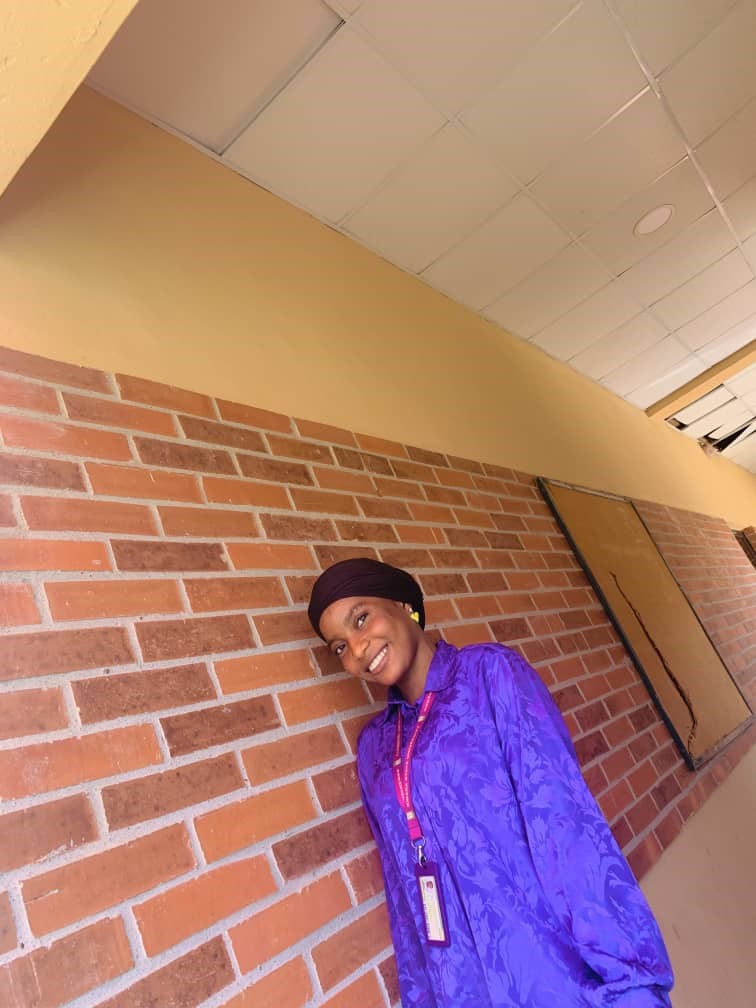Clarion Olusegun
“I now choose 0-1-0 method, meaning I eat once in a day, anyhow it comes. We can’t attend all classes, even to read has been difficult.
“Everything is just so frustrating. I started checking the amount of water I drink everyday because sachet water is now #500 per bag.”
That was Nifemi Taiwo, a 400-level student of History and International Studies, Adekunle Ajasin University, Akungba-Akoko, standing under the scorching sun with a furrowed brow, his stomach growling loudly. Despite attending classes since morning, she hasn’t eaten a single bite. Her face shows the strain of hunger, yet fasting wasn’t part of his plan for the day.
In colleges and universities, students are feeling the pinch of higher food prices and inflation. Beyond the textbooks and lectures, they’re dealing with the challenge of affording meals and essentials. Many students face heightened financial stress, and with the recent surge in food prices, accessing nutritious meals has become increasingly challenging.
On her part, Grace Adegboye, a 200-level student of Food science and Home Economics, University of Ilorin lamented over the recent surge which has caused a great declination in her academic performance and overall wellbeing. Grace Adegboye, battling with ulcer, narrates the detrimental effects of consuming cheaper, less nutritious options, jeopardizing her health and academic performance.

Grace, battling with ulcer, narrated the detrimental effects of consuming cheaper, less nutritious options, jeopardizing her health and academic performance saying, ‘as a peptic ulcer patient doctor recommend a bland diet for the maintenance of my stomach lining from causing rapture or retardation of my stomach, however, the rapid inflation in the purchase of these food items and drugs are so challenging which sometimes I end up eating junks that is detrimental to my health.
She further said that eating of these unhealthy foods has led to severe stomach pain which sometimes restrict her from attending lectures and most times ended up at the clinic for serious treatment.
For Maryam Salman, a 300-level Business Administration student, Kwara State University, the high rate of commodity prices has led to her meal cancellation.

In her words: “Increased food prices led to my skipping meals or consuming cheaper, less nutritious options, access to health care which affect my concentration in class, memory, and overall cognitive function.
“Due to the current financial difficulties, I stopped going for my healthcare routine, healthy food, and other essential resources in order to cut cost.”
Salman’s struggle with accessing healthcare and nutritious meals highlighted a dire situation where basic needs become luxuries
Auwal Nafiu, a 200L Science education student of the Federal University Gusau, Zamfara state, decried that the recent economic crisis and commodity inflation has affected many students, including himself
He said,” the current situation is making it difficult to purchase necessary food stuffs, it also affects our academic activities by making it difficult for us to settle some charges.”
Advising the federal government, he said that it is high time to look back into some of its economic decisions and provide proper solutions that would reduce the high inflation affecting all Nigerians negatively.
Testimony Onigbinde, a 400-level student of Philosophy, University of Ibadan also said that the recent surge as affected her drive-in school.
Expressing her dissatisfaction, she said: “Things are so expensive that the thought of spending your money can be mentally draining.
“You have to keep on managing your pocket money and that alone destroys one’s motivation.
“Sometimes one won’t even feel like going to class because you know that would require you spending money. It hasn’t been easy. Similarly, a 300L KWASU student, from the department of Business and Entrepreneurship, Sukurat Remilekun said the recent economic crisis is doing the most in her academic pursuit.

According to her, “as a Nigerian student, I can tell you the recent economic challenges have been affecting us. With food prices increasing every day and the cost-of-living skyrocketing.
“It’s been a tough road to navigate. Many of us are having to make sacrifices just to get by. Eating once in a day sometimes. It’s not just food that is giving us grief, the high cost of living is putting an increment on everything from rent to transportation.” She added.
Also speaking, Ezekiel Omowunmi, 400l, Ecotourism and Wildlife Management student, Federal University Akure said the current situation has resulted in depression for him.
He said: “Food items are so expensive and I need money for other expenses in school. This alone has caused me to be depressed because I don’t know how to take care of myself again. I am a kind of person that can’t concentrate on books when things are not going well for me so this economic issue is really having a negative impact on my academics. I think all the time.
He further lamented that retail traders are not helping matters as they abruptly fix high prices on their goods on the basis that they sell in a school environment and students have no option than to buy whatever they sell without considering the price.
In his words: “The people selling these food items in school areas are also not helping matters. They inflate these prices themselves because they know students don’t have any choice than to buy them. They think students have money not knowing that what students are spending money on is much.
“I can no longer eat the way I like because everything is very expensive. Before now I can afford to eat what, I like because I know I will be able to replace it but now I can’t try it again because I don’t have the money to replace the food items.
A 400-level student of Biology Education at the Gombe State University, Iman Isa Shuaibu opined that that the recent surge in food prices and inflammation has affected a lot of students’ overall well-being of especially, less privileged students because of the constant rise in food commodities, resulting to students begging course mates, some their boyfriends, which he described as an unrightful actions.
Hence, each of the students’ voice echoes a similar sentiment of frustration, deprivation, and resilience in the face of adversity. According to the student, currently, it’s not a struggle against exams or assignments but against something more insidious – the skyrocketing prices of food and essentials.
The stories shared by students paint a picture of hardship and resilience in the face of soaring food prices and inflation. From skipping meals to battling health issues, the impact of economic turmoil on academic life is undeniable.
These challenges are not just numbers on a page; they represent real struggles faced by individuals striving to better their futures. It is therefore, clear that action is needed. Concerned members of the society, particularly government at all levels must address the root causes of inflation and ensure access to affordable, nutritious food for all.
Institutions can provide support systems and resources to students in need. And as a society, we must come together to uplift those facing financial hardship and create a more equitable future for all. It is time to heed the call for change and work towards a brighter tomorrow where no student has to choose between their education and their next meal.

